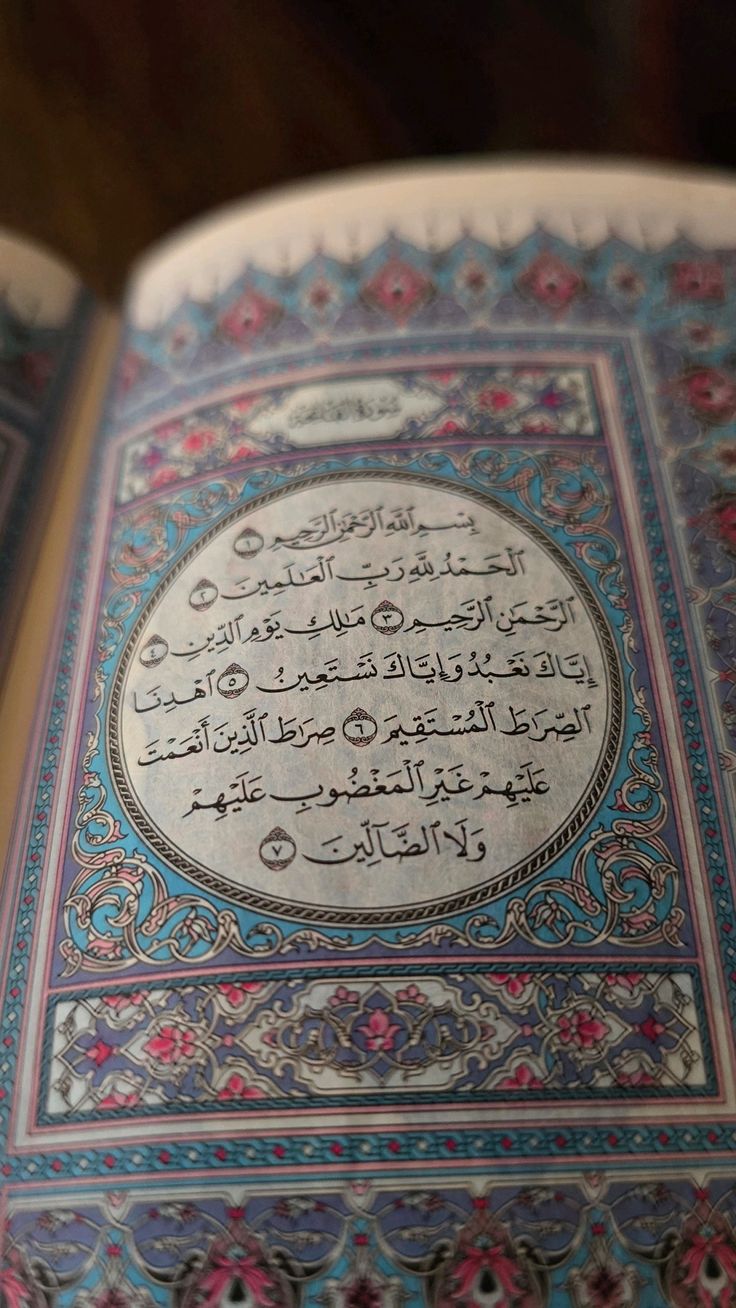
Understanding Surah Al-Fatiha
Surah Al-Fatiha, the opening chapter of the Quran, is arguably the most recited text in the world, repeated by Muslims in each unit of prayer. Despite its brevity—just seven verses—it contains the essence of the entire Quran and serves as the perfect introduction to our relationship with Allah.
The Mother of the Book: An Introduction
Al-Fatiha holds several profound titles in Islamic tradition:
- Umm al-Kitab (Mother of the Book) - signifying that it contains the essence of the entire Quran
- Ash-Shifa (The Cure) - indicating its healing properties for spiritual and even physical ailments
- As-Sab' al-Mathani (The Seven Oft-Repeated Verses) - highlighting its central role in worship
The Prophet Muhammad ﷺ emphasized its importance, saying:
"The prayer of a person who does not recite Surah Al-Fatiha is invalid."— Sahih Muslim

The Seven Oft-Repeated Verses: Structure and Significance
Al-Fatiha follows a perfect structural balance that illustrates our relationship with Allah:
Divine Praise (Verses 1-4)
The first half establishes who Allah is: the Most Merciful, Master of the Day of Judgment.
Human Supplication (Verses 5-7)
The second half presents what we need: guidance, assistance, and protection from misguidance.
This perfect balance illustrates the nature of our relationship with Allah—He is the Giver, we are the receivers; He is the Guide, we are the seekers of guidance.
Verse by Verse Analysis
Let's explore the first three verses of this magnificent surah:
بِسْمِ اللَّهِ الرَّحْمَٰنِ الرَّحِيمِ
Bismillahi r-rahmani r-raheem
In the name of Allah, the Most Gracious, the Most Merciful
الْحَمْدُ لِلَّهِ رَبِّ الْعَالَمِينَ
Alhamdu lillahi rabbil 'alamin
All praise is due to Allah, Lord of all worlds
الرَّحْمَٰنِ الرَّحِيمِ
Ar-rahmani r-raheem
The Most Gracious, the Most Merciful
مَالِكِ يَوْمِ الدِّينِ
Maliki yawmi d-deen
Master of the Day of Judgment
إِيَّاكَ نَعْبُدُ وَإِيَّاكَ نَسْتَعِينُ
Iyyaka na'budu wa iyyaka nasta'een
You alone we worship, and You alone we ask for help
اهْدِنَا الصِّرَاطَ الْمُسْتَقِيمَ
Ihdina s-sirata l-mustaqeem
Guide us to the straight path
صِرَاطَ الَّذِينَ أَنْعَمْتَ عَلَيْهِمْ غَيْرِ الْمَغْضُوبِ عَلَيْهِمْ وَلَا الضَّالِّينَ
Sirata l-ladheena an'amta 'alayhim, ghayri l-maghdoobi 'alayhim wa la d-dalleen
The path of those whom You have blessed, not of those who have earned Your anger, nor of those who have gone astray
How Al-Fatiha Frames Our Relationship with Allah
This surah beautifully establishes the nature of our relationship with our Creator:
- It begins with praise before petition - teaching us to acknowledge Allah's greatness before asking for our needs
- It uses the plural form "we" throughout - reminding us that even in our personal prayers, we are part of a community
- It emphasizes divine mercy before divine judgment - establishing a relationship based on hope rather than fear
- It acknowledges that guidance is a gift from Allah, not something we can attain on our own
Al-Fatiha in Our Daily Prayers
The repetition of Al-Fatiha in every unit of prayer—potentially 17 times daily in obligatory prayers alone—serves multiple purposes:
- It reinforces our covenant with Allah multiple times daily
- It provides a moment of renewed focus and intention in each prayer unit
- It serves as a reminder of the essence of our faith throughout the day
- It creates a rhythmic spiritual practice that grounds our consciousness in divine remembrance

Practical Applications for Modern Life
The wisdom of Al-Fatiha can be applied to our everyday challenges:
For Decision-Making
When facing difficult choices, Al-Fatiha reminds us to seek guidance from Allah rather than relying solely on our limited wisdom.
For Anxiety and Worry
The surah's emphasis on Allah's mercy and lordship over all worlds reminds us to trust in His plan and care.
For Community Building
The use of "we" rather than "I" teaches us to consider the collective good in our actions and decisions.
Conclusion
Surah Al-Fatiha is not just an opening chapter or a ritual recitation—it's a daily renewal of our covenant with Allah, a comprehensive prayer that encompasses praise, worship, and supplication in perfect balance. By deepening our understanding of these seven verses, we transform our prayers from routine to profound communication with our Creator.
As the Prophet Muhammad ﷺ said in a Hadith Qudsi, Allah declares: "I have divided the prayer between Myself and My servant, and My servant will have what he asks for." This divine conversation begins with Al-Fatiha, where Allah responds to each verse we recite, listening to our praise and answering our call for guidance.
"When you stand in prayer, recite what is easy for you from the Quran. Then bow, remaining calm in your bowing... When you do that, your prayer is complete."— Prophet Muhammad ﷺ (Abu Dawud)